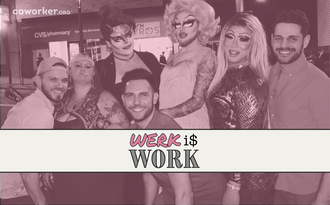-
Lowe’s employees deserve severanceMy name is Patricia Wilkerson and I worked at Lowe’s in Dayton, TX for over 15 years. I’m left without a job and without severance pay It has been very difficult not being given a permanent job and having been laid off twice from Lowe’s. I have had to work for cash as a design assistant and personal driver off and on to scrape by and even my grown children have had to help me . As a result, I'm behind on my mortgage and could lose my home. Lowe’s CEO Marvin Ellison has shut down stores across the country and fired thousands of employees in order to increase profits for top executives. This isn’t right. Ellison needs to take responsibility for destroying our jobs and offer support for struggling families like mine who have been serving this company for years. This is the same corporate greed that is hurting hundreds of thousands of working people and our families at other retailers – and it needs to end. We call on Lowe’s to pay severance to store employees whose jobs he destroyed. For every year worked, we call for a week’s worth of pay. We further call on him to take steps to protect the jobs that remain at Lowe’s, so that our former coworkers have more assurance that their lives won't be thrown into chaos, as mine has been. Thanks for standing with us. By signing up, you are agreeing to receive updates from United for Respect. You can unsubscribe or update your preferences at any time. Message and data rates may apply. Text HELP for more information. Text STOP to stop receiving messages.4,772 of 5,000 SignaturesCreated by Patricia Wilkerson

-
Allow Beards for Super 1 Employees!!!As long as the beard looks neat, clean and professional-looking, has defined chin and neck lines, doesn't exceed 2 inches in length, and people working in food preparation areas wear beard guards, there really is no reason why employees at Super 1 shouldn’t be able to have beards.12 of 100 SignaturesCreated by Isaac Gondo
-
Concerned Equinox EmployeesEquinox & SoulCycle should not in any way contribute to the support or re-election of Donald Trump. As an employee contributing to the success of the company, which Stephen Ross profits from, our work is being sold to promote an agenda of hate. Instagram.com/2PeaceWarrior696 of 100 SignaturesCreated by Peace Warrior69
-
Bring Back Cordell to Dorchester's front desk!Cordell Walker has been working the front desk at the Dorchester House for over 5 years. Last month, he was unceremoniously removed from his post at the Dorchester, effective immediately, with a thin, unsubstantiated justification. We are asking that he be reinstated immediately. Anyone who has walked by the Dorchester's front desk during Cordell's shift --typically 11pm-3pm on weekends-- is likely familiar with his warm and reassuring presence. Often, one or more residents is standing at the desk chatting with Cordell, staying longer than they need to pick up their package or readjust from the outside weather, and doing so because he is there. He is warm, funny, dedicated and professional to the residents and to his colleagues, often training new employees and/or picking up other shifts despite working difficult overnight hours. To many of us, he has become a, if not the, face of the Dorchester House, one that makes this place feel like a community and a home and who exemplifies why we would choose to live in this building. We, the residents, appreciate all the contributions Cordell has made to our community and urge his employer to do the same. We want Cordell back at the Dorchester!24 of 100 SignaturesCreated by Sara DuBois

-
Ventilated Hoods For EVERYONEMany of our coworkers are becoming ill, overheating, and spending their time off with headaches due to the non-ventilated hoods. I have seen my co-workers continuously feeling faint/dizzy, having panic attacks, sweating profusely, and even vomiting. I’ve seen people have to leave the clean room for air because the unvented hoods are completely unbearable for the overwhelming majority of us. People are quitting their jobs over this. Those of us that are pregnant, susceptible to migraines, susceptible to vertigo, currently battling illness, etc. are at even more risk due to the implementation of non-ventilated hoods. Those of us who have no pre-existing conditions are experiencing symptoms of heat exhaustion as well. This is only day 3! What are the long term effects of working like this? What research has been done on the safety of working in these types of hoods? No one in our leadership has been able to answer these questions. It is up to us to tell them what is safe and healthy for us! We need ventilated hoods for ALL clean-room workers, starting right now! This issue is not just a matter of us being inconvenienced or slightly uncomfortable, we believe this is a human rights violation and a violation of our OSHA rights. Help me let our policy-writers know that we are NOT okay with this!162 of 200 Signatures
-
Stop Starbucks UK from Wasting FoodIn my store we throw out about 30 items of food at the end of the day but UK staff are not allowed to take some home without buying it and we are banned from giving it away to homeless shelters etc. In the US, Starbucks has implemented a 'Food Share' program that distributes leftover meals to food banks but what about the hundreds of Starbucks stores in the UK?3,621 of 4,000 SignaturesCreated by Anon Ymous
-
Amazon Management: Meet with DCH1 Amazonians United now!We work hard every night and day to make sure Amazon packages get delivered, but our working-conditions issues are never resolved. The issues speak for themselves. Our pay is inadequate. We need access to healthcare. And an "Excessive Heat Watch" is in effect this week, and the only step Amazon management has taken to combat heat exhaustion is to give us popsicles. We need real solutions. We need Domonic to meet with us now.5,145 of 6,000 SignaturesCreated by DCH1 Amazonians United
-
Treat Luggers with Dignity and RespectWe are a group of Luggers who want to help Lugg become a better workplace: Happy Luggers, happy customers, happy investors. Luggers are the marketers, ambassadors, and promoters of your company. We interphase with customers all day, and we want to do a good job every time. We are professional and hard workers. However, Lugg makes our lives unnecessarily miserable every day at work. Drivers and helpers sometimes get deactivated without knowing why, and Lugg has a practice of cancelling work shifts as punishment. When we ask for clarification, we get ignored, scolded, and belittled. We take working at Lugg seriously, and we are willing to put in all the energy and endless hours because we need the job, it is a main source of income for us and our families. When we are deactivated, we fall behind on our bills, and it hurts our livelihood, which is demoralizing. We invest so much of our time to working for Lugg, that we give up on other jobs, and other opportunities for making income. Sometimes there are no jobs provided during our scheduled shifts with Lugg, and we end up having to be on-call, waiting for jobs that never come, without pay. If we request to clock-out while waiting, we are told that we are the only crew available, and that we need to stop spamming with our request. If we insist, we get ignored. We don’t want to clock-out, we want to work, we need income! But we fear being kicked out of the platform for asking Lugg to free-up our time when they don’t give us work. Lugg has a policy of cancelling all future shifts as punishment for pausing or stopping work with no consideration for the circumstances, if we don’t do it 24 hours in advance. One Lugger had a family member in the hospital fighting for life, and needed to attend this emergency, so he notified Lugg asking to get the rest of that day off. Lugg deleted all future shifts and restricted him from scheduling work for a week, leaving him with no income in the middle of his medical emergency. Another Lugger suffered a small accident while on-the-job, hurting his foot. He finished his shift with his foot hurt, and asked Lugg for a couple days off to recover, but Lugg cancelled all of his future shifts as punishment, anyway. We have to beg Lugg for a couple minutes to use the bathroom or take a break, as they are tracking us at every moment and every place where we are. We always work in pairs. Customers are only able to review both workers together with the same ranking applying to both, even if one may have performed better or worse than the other. This ranking affects our opportunity for higher pay and better shifts. Lugg assigns work shifts based on a priority system. Workers with Priority 1 get the first pick on shifts and a higher pay. To escalate from priority 3 to 2 to 1, a worker must maintain a high customer ranking individually, but the ranking affects both Luggers. Our lives are full of uncertainty, not knowing when Lugg may terminate us on a whim, or when we may get a negative review because of someone else’s performance, and lose our job. We suffer high levels of stress, with no health insurance. Many of us are responsible for our children’s future. Jordan Brown, Lugg CEO, as a new parent would understand the importance of steady income to support our kids. We have to pay rent, take care of ourselves. We are very frustrated but we want to make it work. If these things are fixed, the quality of our lives can improve, and our happiness will increase: Happy Luggers, happy customers, happy investors. Whether you are a driver, a helper, a customer, or a member of the community, we invite you to support our effort to demand that Lugg improves the way it treats its workers. Thank you!3,131 of 4,000 SignaturesCreated by Luggers Make a Move
-
Equal Pay for USWNTAs a long time fan and supporter of the USWNT, this cause is very near and dear to me. Watching the USWNT is an immense source of joy for me, as well as for my family. My mom and I have bonded over watching the USWNT and we know there are many others who share the same story and want to see these women be paid what they deserve. The USWNT has won 4 World Cup titles, and placed in either 2nd or 3rd in the rest (out of the 8 women’s World Cup tournaments.) Additionally, they have 4 Olympic Gold medals, while the men have won ZERO world cups despite the men’s World Cup being around since 1930 (about 60 years longer than the women’s) and ZERO Olympic gold medals. Additionally, the women’s game generates as much as and even more revenue and merchandise sales, from fiscal 2016 to 2018, the women’s games generated about $900,000 more revenue than the men’s games. In the year following the 2015 World Cup win, women’s games generated $1.9 million more than the men’s games, AND the USA women’s home jersey, in the midst of the 2019 world cup, had already become the #1 selling soccer jersey, for both men and women, ever sold on Nike’s website in one season, yet the women are being paid a mere fraction of the men’s team while the women continue to defy odds, face continuous criticism and sexism while still effortlessly winning world titles left and right. I'm hoping this petition continues to raise awareness about this issue, and not only show that the USWNT deserves equal pay for equal/superior play, but to show how the women's game in general needs more attention and funding to rise to the level of the men's game worldwide. The USWNT is a prime example of how women's sports can and will succeed and rise to the highest level of play, and it's up to us as fans to give our full support and make sure our voices are heard so all these phenomenal women athletes are given the opportunities and salaries they deserve.3,684 of 4,000 SignaturesCreated by Niki Shadoan
-
Goede CAO = Goede ZorgZodat we goede zorg kunnen blijven leveren.2 of 100 SignaturesCreated by Tara O'Dowd
-
Estes Express Lines: Pay Dock Workers Overtime After 40hrsEstes Express Lines is one of the largest freight trucking companies in the U.S. They currently have about 16,000 employees, more than 6,700 tractors and 30,000 trailers, and a network of 200+ terminals. They continue to grow bigger and bigger which is a good thing but a lot of us feel like the dock workers should be getting compensated for any overtime that is needed of us. We've been taking on so much freight this year that we have been put on mandatory 6th days. The fact we are having to work extra days that should be spent with our families, and we don't get paid overtime after 40 hours is a real kick in the gut. Not getting paid overtime after 40 hours makes us feel like we're getting taken advantage of. Every other position besides the dock worker gets some kind of compensation for working either over 40hrs a week or having to work a mandatory 6th day. Jockeys get overtime after 40hrs, office staff get overtime after 40hrs, management get compensation days. Why are the dock workers left out? We, the undersigned, respectfully call upon CEO Rob Estes to put into effect that all dock workers from Estes Express Lines get paid overtime after 40 hours in a work week. Surely the time has now come to see that this issue needs to be changed because the dock workers are not being treated equally. We submit this plea for the following reasons: 1. Everyone eles is paid overtime or gets a compensation day for a mandatory work day. 2. It's not treating us as equals as everyone else. 3. It would make having to work extra time or mandatory days not as bad. 4. It would boost the morale of the shifts. 5. It would cause better shifts to get created, so that all shifts are working more closely to the same amount of hours.4,863 of 5,000 SignaturesCreated by Alan Watts

-
Werk is Work! SF Bay Drag Employers: Pay a Minimum Booking FeeDrag performers attract paying customers, and keep the San Francisco Bay Area weird and amazing. Often our community incurs high costs with little return for our labor. We’re amazing people to work with and we support a slew of other paid roles in our event production. If this isn’t enough to convince you, keep reading. ------------------------------------------------------------------------------------------------ We want that San Francisco Bay Area bars, clubs, and other employers of drag entertainment ensure that each drag performer and staff receive AT LEAST $40 per show: $40 = 2 numbers max, no more than 2 hours at the venue. *Tips only agreements: the employer must close the gap if $40 minimum is not made in tips. **Open spots (i.e. Club Poppers): technically, no one is “booked.” Participation is at the promoters’ and performers’ discretion. ----------------------------------------------------------------------------------------------- My name is Alexis Atauri and I am a drag queen in San Francisco. For the past 3 years, I have cried, laughed, lived, and loved with a community of performers, DJ’s, lighting designers, wig makers, and other talented artists in the Bay Area. A true labor of love, I’ve seen my community sacrifice so much to continue to push the boundaries of gender expression, art, and weirdness while still advocating and creating space for everyone. It’s never going to be easy, and we wouldn’t want it to be. However, despite the ongoing conversation about dignified pay in our community, we are not organizing action around this conversation. Some venues pay well; some don’t. Regardless of our skill and experience, don’t we all deserve to expect a minimum booking fee if we are asked to share our drag? I believe we do and I want to fight for better pay for us all. We want a fair return on our Labor. This is no different from dancers, makeup artists, hair stylists, and other artists. We want employers to take us just as seriously when requesting our services so that we can establish and sustain good working relationships, and quality performances for customers to keep coming back. Knowing that the venues where we work support fair treatment and dignified paid for all workers, including us, can only improve our art. It can’t hurt. A minimum of $40/performer is more than a reasonable cost for anyone booking drag in the Bay Area. It doesn’t make performers who get paid more suddenly receive less compensation. It doesn’t force newer queens to hustle or have a traumatic experience starting out in drag. It will discourage performers from price gouging each other. Ultimately, it will allow our community to continue to exist and thrive in a financially tumultuous city. Awareness is an important part of this conversation. Audience members, employers, and corporations (i.e. people who don’t do drag) don’t know firsthand what it takes to produce a look, a performance, or even just a face. Encouraging transparency about the cost and compensation of drag may encourage audience members and employers to better value our productions with tips, increased budgets, or even perks like free drinks, VIP access, or free guest entry. Bay Area drag is diverse, so I expect the opinions surrounding this conversation to also be dissonant, but constructive. The important part - or “Why?” - is that we have this conversation and take action. The cost of sustaining drag is no joke. Most of the time a night’s pay (including tips) doesn’t cover the cost of the makeup, costume, and transportation to support the event. I admire Bay Area Drag performers’ ability to be creative about reusing content, sourcing cheap materials, and working side gigs while still delivering top-notch performances. A minimum booking fee will only help us continue to thrive in performances and other hustles. The more money invested into us, the more fabulosity we can put out, and the more customers we can attract for bars/clubs. Making sure this conversation is inclusive of other roles and performers in our drag scene is important, too. We wouldn’t shine as bright without our DJ’s, handlers, door staff, and stage managers, for example. Fighting for pay for all can only increase the quality of the entertainment we produce, increasing the patronage to the bar/club as well. It also stands to mention I feel that pole dancers, voguers, burlesque, puppet masters, and anyone who is on stage with us deserve fair compensation and the audience’s attention; they are included in this conversation about drag compensation. I believe anyone who is asked to spend their time and talent to be a part of a drag production should be included in the budget, and employers should also value them alongside drag performers. Everyone’s work deserves to be dignified and should be compensated fairly. What is the importance of drag in the community, anyway? Hopefully, you scoffed at this rhetorical question. The first largely recognized social rights movement for LGBTQIA was started by a black, transgender drag queen in New York City. We provide spaces for those in the community that are often cast aside, celebrating their queerness and providing the means for them to thrive in the bay. Look no further than the Sisters of Perpetual Indulgence to see that donning a look and exaggerating your personality is an effective way to serve our community where they are most in need. We keep San Francisco Bay Area weird. We support other artists. We give you something sparkly to look at when you’re out. We sustain safe spaces. Drag has always been there for our community, and we are the best version of ourselves when the community is there for us, too. I hope you can stand beside us and support our efforts! XOXO Alexis Atauri2,066 of 3,000 SignaturesCreated by Alexis Atauri

Quick Links

Quick Links













